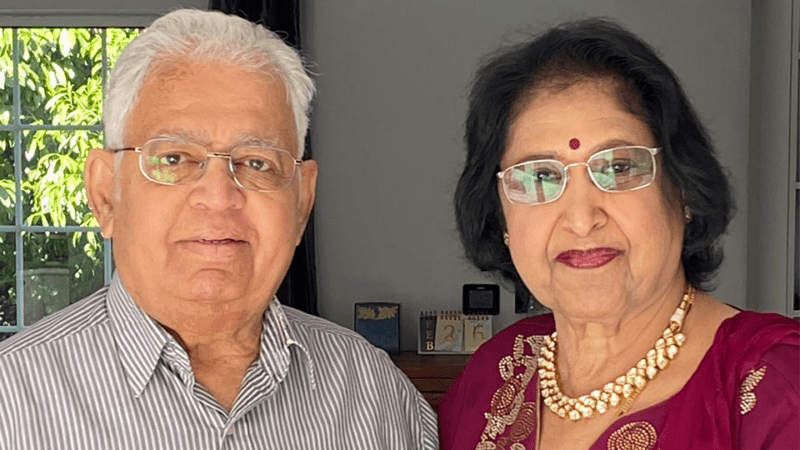
I can’t imagine having more empathetic bosses
Glenn shares how flexible working arrangements and support from his managers enables him to continue working whilst prioritising his wife Helen's care.
If you care for someone with dementia, it is likely that at some stage, you will need to help them manage appointments, prescriptions and other services with their GP. Using online services can help make this process easier.
Online GP services allow you to use your computer, tablet or smartphone to manage your own healthcare and that of the person you care for (with consent from them and their GP).
You can access these services 24 hours a day to:
Online GP services may be available via a website and/or an app. In England, the most widely used is the NHS app. As well as the actions listed above, it allows you to:
In Wales, there is a similar app called NHS Wales; in Northern Ireland, it is called My Care. The Scottish app, NHS 24 Online, only allows you to find local healthcare services and assess symptoms and does not include the full features of the NHS app in England.
If you care for someone with dementia, using online GP services can help you view and manage their appointments, repeat prescriptions, test results and medical notes. To do this, you must be named as a ‘trusted person’ or ‘proxy’ by their GP.
The person with dementia must give their informed consent to you becoming their trusted person. They must have the capacity to do so under the Mental Capacity Act. This means they must be able to:
The GP can offer guidance on whether the person you care for has capacity to consent to you having proxy access.
Most people with dementia will reach a stage where they lack capacity to make some decisions. In this situation, it might be possible for the GP to name you as a trusted person without the person’s consent if it is in their best interests.
To appoint you as a trusted person, the person with dementia will be asked to fill in a three-part form, available from their GP surgery.
You can help the person fill in the form, but they must sign it themselves. If they cannot do this, please ask the GP or practice manager for advice.
Having completed the form, you and the person with dementia will need to visit the GP, taking photo ID such as a passport, driving licence or bus pass. If you or the person you care for do not have a recognised form of ID, there are other ways to prove your identity. The GP practice can advise you about this.
The GP may ask to see the person with dementia alone before giving you online access as a trusted person. They may ask whether there is any medical information that they would like to be kept private. The GP can decide not to give you access to any or all of the person’s online services if they feel it is not in their best interests.
The decision on whether to appoint you as a trusted person may take around two weeks. It may be possible to make the decision more quickly if the need is urgent. If this is the case, ask to speak to the GP.
A lasting power of attorney (LPA) is a legal document that appoints a person (or persons) to make decisions on someone’s behalf if they cannot do so themselves.
There are two types of LPA in England and Wales: one for health and welfare, and another for property and financial affairs. In Scotland, the equivalent is called Power of Attorney. The Northern Ireland equivalent, Enduring Power of Attorney, only allows you to make decisions about property and finances – not healthcare.
If the person you care for has capacity but has not made an LPA, you should encourage them to do so as soon as possible. As well as supporting your application to become a trusted person, it will allow you to make other important decisions in their best interests if they become unable to make these decisions themselves.
Being an attorney for health and welfare does not guarantee that the GP will nominate you as a trusted person, so it is a good idea to discuss this as early as possible, while the person with dementia has capacity to express their wishes.
NHS 111 is a service that helps people get the right medical advice and treatment in an urgent situation. You can access it by dialling 111 for free from a landline or mobile number, or online via 111.nhs.uk
When you use NHS 111 online or by phone, you will be asked a series of questions. You can answer them yourself or on behalf of someone else.
Depending on the situation, you may be:
To speak to a dementia specialist Admiral Nurse about using online GP services or any other aspect of dementia, call our free Helpline on 0800 888 6678 (Monday-Friday 9am-9pm, Saturday and Sunday 9am-5pm, every day except 25th December) or email helpline@dementiauk.org
If you prefer, you can pre-book a phone or video call appointment with an Admiral Nurse: visit dementiauk.org/book
Getting the best out of GP and other health appointments
Getting the best out of a remote consultation
Registering as a carer with your GP
My Care app (Northern Ireland)
Our free, confidential Dementia Helpline is staffed by our dementia specialist Admiral Nurses who provide information, advice and support with any aspect of dementia.

Glenn shares how flexible working arrangements and support from his managers enables him to continue working whilst prioritising his wife Helen's care.

Will shares how his mum's diagnosis impacted the family and highlights the importance of advocating for young carers.

Pratibha shares her experience of caring for her late husband, Narayan Gopala, who lived with vascular dementia and died in 2024.